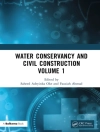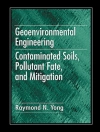This book contains the most recent progress in data assimilation in meteorology, oceanography and hydrology including land surface. It spans both theoretical and applicative aspects with various methodologies such as variational, Kalman filter, ensemble, Monte Carlo and artificial intelligence methods. Besides data assimilation, other important topics are also covered including targeting observation, sensitivity analysis, and parameter estimation. The book will be useful to individual researchers as well as graduate students for a reference in the field of data assimilation.
قائمة المحتويات
Kernel Methods for Data Assimilation in Geophysical Modeling.- Adjoint-free 4d variational assimilation into regional models, - Investigation of scale sensitivity using a nested adjoint model.- Assessment of radiative effects of hydrometeors in rapid radiative transfer model in support of satellite cloud and precipitation data assimilation.- Data assimilation over complex terrain.- Assessing the impacts of ocean surface winds and 3-D wind measurements on high-impact weather forecasting.- Quantification of Uncertainty in forecast using Polynomial Chaos and Unscented Transformations and their impact in ensemble data assimilation.- Soil Moisture Data Assimilation.- Toward new applications of the adjoint sensitivity tools in variational data assimilation.- Information Quantification for Data Assimilations.- Impact of Data Assimilation on Super Typhoon (2010).- Forecast sensitivity to observations.- Data assimilation for coupled modeling systems.- GPS TPW Assimilation with the JMA Nonhydrostatic 4DVAR and Cloud Resolving Ensemble Forecast for the 2008 August Tokyo.- Validation and operational implementation of the four dimensional variational data assimilation system for the Navy coastal ocean model.- Recent Advances in Bottom Topography Mapping via Data Assimilation in Rivers, Estuaries, and the Coastal Ocean.- Data Assimilation Experiments of Refractivity Observed by JMA Operational Radar.- Stratospheric and Mesospheric Data Assimilation.- A review on variational methods for geophysical flows.- A new multi-outerloop formulation for NAVDAS-AR.- Impact of model physics on assimilation of precipitation and cloudy radiance observations in 4DVar.- A coupled atmosphere-chemistry data assimilation: Application to a tropical cyclone.- Improving the snow albedo parameterization using optimal estimation in land surface modeling.- Study of the impact of uncertainty of climate change on the simulation of terrestrial ecosystem by using the conditional nonlinear optimal perturbation of parameters.- Target Observations for High-impact Ocean-Atmospheric Environmental Events.
عن المؤلف
Seon Ki Park is Professor of Environmental Science and Engineering and Director of the Severe Storm Research Center at the Ewha Womans University in Seoul, Korea. He obtained a Ph.D. in Meteorology from the University of Oklahoma, M.S. and B.S. in Meteorology from the Seoul National University, Korea. He had worked as a research scientist at University of Oklahoma, University of Maryland and NASA/Goddard Space Flight Center.
Liang Xu is a meteorologist in the data assimilation section, Marine Meteorology Division, Naval Research Laboratory in Monterey, CA. In the past several years, Dr. Xu and his team have been developing, testing, and transitioning the US Navy’s weak constraint mesoscale atmospheric four dimensional variational (4D-Var) data assimilation system, COAMPS-AR, to operation. He is also working on the data assimilation aspects of the land surface processes.












